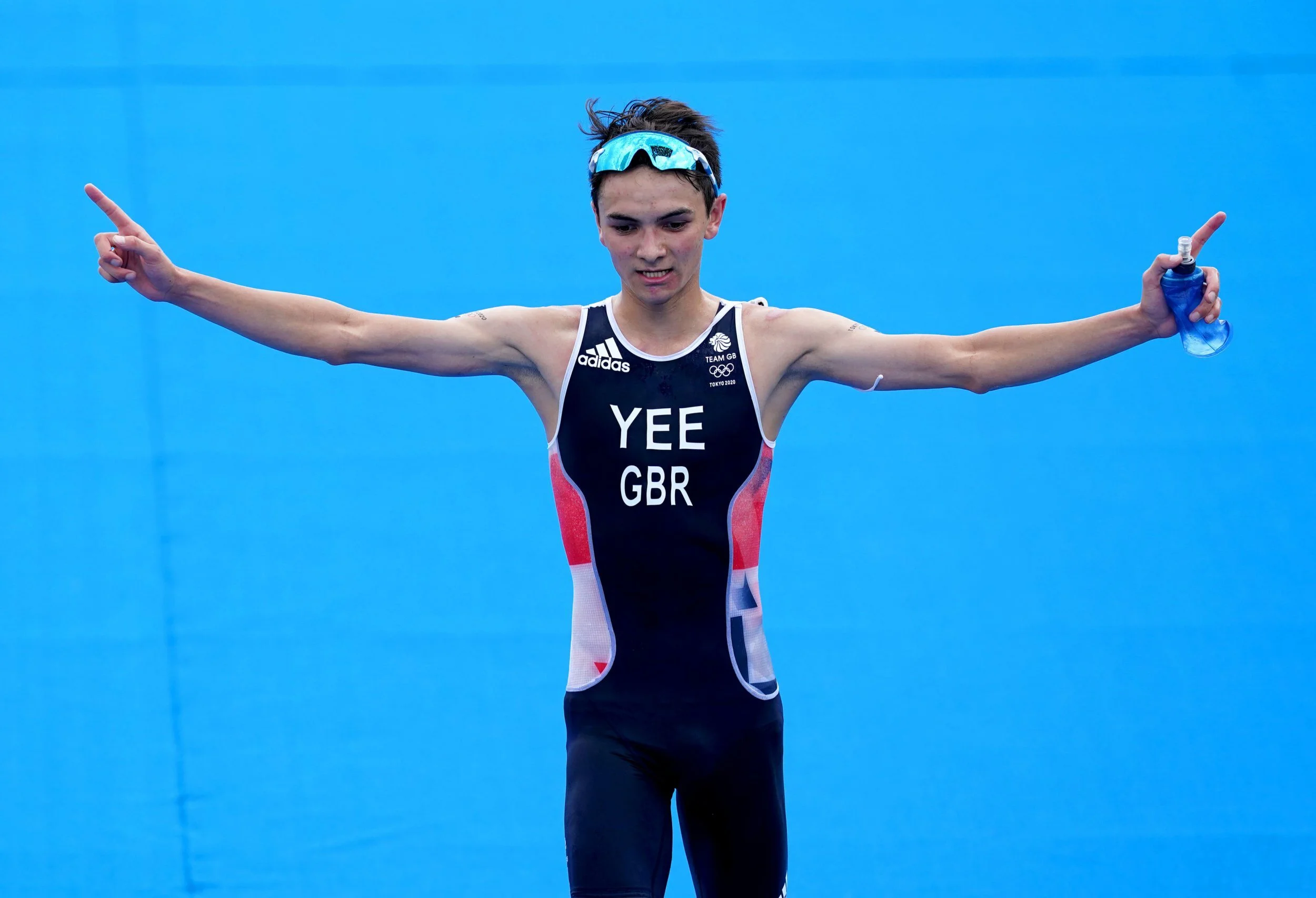Olympic fever and the joy of coming second
This was first published on my Patreon page on 26 July 2021 as part of my weekly Monday Musings column.
So the Olympics are upon us. I had thought I’d just skim lightly over the first week’s action, with the athletics not starting until Friday. But first I got hooked in by the skateboarding, and then last night, just as I was about to head to bed to get my much needed recovery sleep (after my first 50-mile training week in a long time!), I spotted that the triathlon had started, and - fatally - I switched it on, telling myself that I’d watch it for 10 minutes.
Ten minutes later I was gripped, and my early night was history.
I’ve never been tempted to do a triathlon myself, put off by the amount of gear you have to buy, the silly outfits and the fact that I’m only a very average swimmer. But there is something just so compelling about the Olympics. You don’t need to know the athletes or their backstories. Nationality is enough. “Here come the Norwegians,” said the commentator. “Watch out for the Brazilians.”
The two Brits in the race I did know about. Alex Yee is one of the best 10,000m runners in the UK, famously faster than Mo Farah was at his age - although Mo Farah wasn’t actually that good when he was younger. However, when Yee latched on to the lead group in the cycling, I knew he had a chance.
It was just me and my daughter Lila left up watching by the time the 10K run began. A small group of about 10 runners had got away at the front, and Yee was among them. Triathletes have a particular way of running, very upright, square shoulders and choppy, quick steps. Except for two of them, we decided, lounging on the sofa and passing our un-expert eyes over proceedings. One was Yee, who seemed to glide, like a real runner, smooth and effortless. The other was the Norwegian runner. He wasn’t nearly as skinny as the others - we even ventured to say, in the privacy of our living room, that he looked a little podgy and out of shape - and he ran more like a boxer than a runner. We marvelled that he was there at all, somehow keeping up.
Any triathlon fans probably know all about Kristian Blummenfelt, but to us - especially in his almost see-through outfit - he looked like a mad spectator who had jumped onto the course and was trying to keep up.
With a mile to go, the Norwegian Blummenfelt started sprinting like a man possessed, blitzing away from everyone. How was he running so fast? Yee tried to go with him but just didn’t have the same frenzied energy, and in the end had to settle for silver.
“I was already deep in the well when he made his move,” Yee said afterwards. “I dug as deep as I could but that was all I had today.” Yee is only 23. He’ll be back.
It was interesting to hear that expression though, about being deep in the well. Ever since I read The Wind-Up Bird Chronicle by Haruki Murakami, in which the main character takes to climbing down an old well to find a sense of solace - and a weird, alternative reality - I’ve often thought the imagery can be applied to endurance running. When you get really tired in a long race, it’s a bit like you’ve climbed down a well - the rest of the world gets blocked out and it’s just you in your own, intense reality. And it does give you some kind of solace.
You could tell the interviewer was itching to ask Yee if he was disappointed after coming second, but I was glad that instead Yee was delighted with his silver medal. “I’m just a normal guy from south-east London,” he said. “It’s just crazy that dreams really come true.”
There is this idea in sport that if you’re happy with second place, then you’ll never be a winner. Many people noted how the England footballers took off their Euro 2020 silver medals the moment they got them, to show how little they valued coming second.
I think this is a shame. How you feel after the event, won’t change the result. And you can still be driven to succeed in the future without having to feed off the fire of disappointment. In fact, what partly makes the Olympics so compelling is that it celebrates the first three in each event, not just the winner.
Look at the Kenyans. Kenyan runners are some of the fiercest racers out there, but I’ve spoken many times to them after they’ve finished second, third or fourth, and they are usually just has happy as if they’d won. In fact you’ll often see all the Kenyans do a lap of honour after a race even if only one of them has done well.
The Olympic skateboarders, too, were a breath of fresh air in this regard, celebrating when their rivals did an amazing jump as though it was one of their teammates. The French guy who finished fourth told the BBC afterwards: “I’m just so stoked for the top three guys. We’re all out here having fun, that’s the important thing.”
Yes, you can give it everything to win, and still be happy even if you don’t succeed. Happy that you did your best, that you came close to winning, and that you are out there competing in the Olympics and living your best life. I, for one, don’t think Alex Yee is doomed because he was happy to come second. In fact, I think that makes it more likely he’ll be in the mix in Paris 2024.

